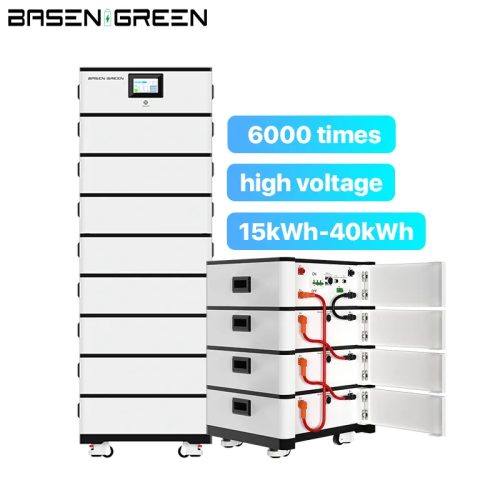International Day of Forests Hot Deals, Sale Ends March 31st
Coupon for $25 off the entire site “green25”
Can Home Energy Storage Systems Utilize Higher Voltage Batteries?
Can Home Energy Storage Systems Utilize Higher Voltage Batteries?
The realm of home energy storage is rapidly evolving, and a common question among homeowners is the feasibility of using higher voltage batteries in their systems. This blog delves into the possibilities and considerations involved in integrating higher voltage batteries into home energy storage solutions.
Understanding Voltage in Home Energy Systems
The Role of Voltage in Energy Storage
Voltage in electrical systems is akin to water pressure in plumbing. It determines how much energy can be transported through a system efficiently. In home energy storage, higher voltage often translates to more efficient energy transfer and can handle higher power demands.
Comparing High and Low Voltage Systems
Low voltage systems (up to 48 volts) have been traditionally used in most residential settings. High voltage systems (above 48 volts), on the other hand, are gaining popularity due to their efficiency in larger applications, such as electric vehicles and industrial settings.
Advantages of Higher Voltage Batteries in Home Storage
Enhanced Efficiency
Higher voltage systems can reduce energy loss during the conversion process (from DC stored in batteries to AC used in homes). This efficiency is crucial for maximizing the utility of stored energy, especially when sourced from renewable installations like solar panels.
Scalability and Future Compatibility
As home energy demands grow and technology advances, high voltage systems offer better scalability. They are more compatible with a wider range of modern appliances and renewable energy technologies.
Safety and Installation Aspects
Higher voltage systems require strict adherence to safety protocols due to the increased risk associated with higher voltages. Professional installation is often recommended to ensure safe and optimal operation.
Challenges and Considerations
Cost Implications
Higher voltage batteries and systems can be more expensive upfront. The cost is a significant factor for homeowners to consider, especially when budget constraints are tight.
Compatibility with Existing Systems
Integrating higher voltage batteries into existing low voltage home energy systems can be challenging. Compatibility with current inverters and energy management systems is crucial.
Regulatory and Safety Standards
Adhering to local electrical codes and standards is vital. Higher voltage systems may have different regulatory requirements compared to traditional low voltage setups.
Making the Decision for Your Home
Assessing Your Energy Needs
Evaluate your current and future energy needs. If your home has high energy consumption or you plan to expand your energy system, higher voltage batteries might be beneficial.
Budget and Long-Term Goals
Consider both your immediate budget and long-term energy goals. While higher upfront costs are a factor, the efficiency and scalability of higher voltage systems could offer long-term savings and benefits.
Consultation with Professionals
Before making a decision, consult with energy storage professionals. They can provide insights specific to your home’s setup and local regulations, ensuring a safe and efficient energy storage solution.
Conclusion
In conclusion, while higher voltage batteries offer several advantages in terms of efficiency and scalability, they also come with considerations such as cost, compatibility, and safety. Careful evaluation of your home’s energy needs, consultation with professionals, and adherence to safety standards are key to determining if a higher voltage battery system is the right choice for your home energy storage.


